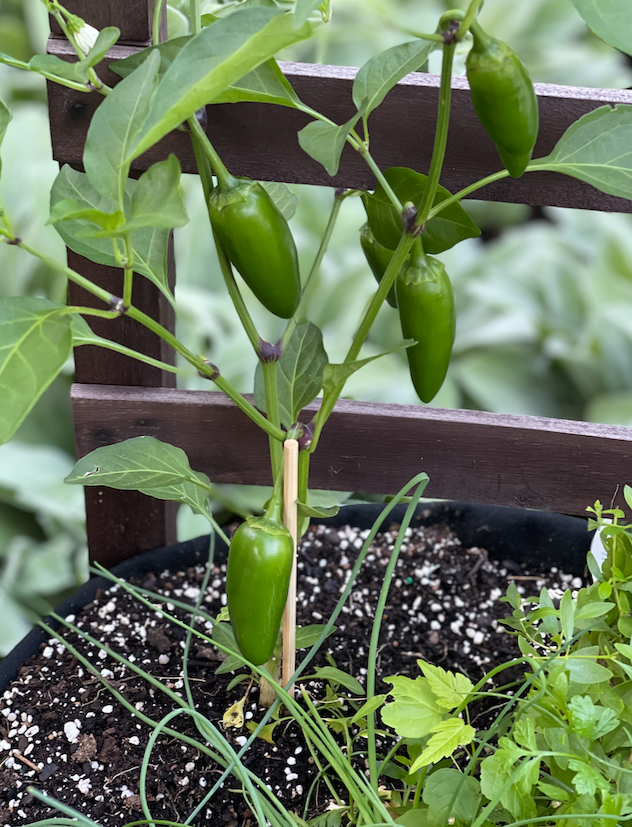Organic Vs. Synthetic Fertilizers: Which Is Best for Supporting Healthy Pepper Plants?
In the world of nurturing healthy and balanced pepper plants, the option in between artificial and organic fertilizers stands as a critical choice with far-ranging effects. While both options objective to offer crucial nutrients to sustain plant development, the subtleties of their influence on the soil, plant wellness, and the setting trigger a debate that echoes throughout the gardening area. Comprehending the unique advantages and prospective risks of each plant food type is important for pepper cultivators seeking to optimize their yields while keeping an eco-conscious and lasting technique.
Benefits of Organic Plant Foods
Organic plant foods use a lasting and environmentally-friendly approach to nourishing pepper plants, offering vital nutrients without using synthetic chemicals. These natural fertilizers are originated from organic sources such as compost, manure, bone dish, and algae, advertising soil wellness and biodiversity. Unlike artificial fertilizers, natural options launch nutrients slowly, making certain a stable and well balanced supply for pepper plants to thrive.
One considerable benefit of organic plant foods is their ability to enhance dirt structure and water retention. By boosting soil wellness, organic fertilizers advertise advantageous microbial task, which assists in nutrient uptake by pepper plants. Furthermore, natural fertilizers decrease the threat of chemical run-off, protecting water sources from air pollution and safeguarding the atmosphere.
In addition, organic fertilizers add to lasting soil fertility by advertising the development of advantageous soil microorganisms. These organisms help break down raw material, releasing nutrients in a form that is easily available to pepper plants. best fertilizers for peppers. By promoting a healthy and balanced dirt ecological community, organic fertilizers support sustainable pepper growing methods that profit both plants and the setting
Downsides of Artificial Fertilizers
Artificial plant foods, in contrast to their organic equivalents, pose different negative aspects when made use of to nurture pepper plants, influencing both plant wellness and ecological sustainability. One major drawback of artificial plant foods is their propensity to seep nutrients from the dirt swiftly.
In addition, the overuse of artificial plant foods can add to water air pollution. Excess plant foods not absorbed by plants can remove into water bodies, causing eutrophication, where algae flowers diminish oxygen degrees in the water, hurting aquatic life. Artificial plant foods are normally acquired from non-renewable resources, such as fossil fuels, contributing to carbon emissions and environmental degradation during their production.
Nutrient Absorption Contrast
Reliable nutrient absorption plays a critical function in the general health and wellness and growth of pepper plants. When contrasting synthetic and natural fertilizers in regards to nutrient absorption, natural fertilizers have the benefit of offering a more balanced and slow-release source of nutrients (best fertilizers for peppers). Organic fertilizers contain a range of macro and trace elements that are not just valuable for the plants but additionally promote healthy dirt microbial task, which aids in nutrient uptake. On the other hand, synthetic fertilizers usually offer a fast launch of nutrients, which can bring about leaching and overflow, causing reduced nutrient hop over to these guys absorption prices by the plants.
In addition, natural plant foods boost dirt framework and water retention ability, permitting pepper plants to access nutrients much more efficiently. This improved soil quality helps with root development, enabling better nutrient absorption. Synthetic plant foods, although originally boosting plant development as a result of their high nutrient focus, might impede long-lasting nutrient absorption by derogatory soil health and wellness in time.
Environmental Impact Considerations

On the various other hand, synthetic plant foods, although commonly more concentrated and immediately readily available to plants, can have destructive impacts on the atmosphere otherwise used correctly (best fertilizers for peppers). Their manufacturing needs high energy inputs, resulting in greenhouse gas discover this exhausts and adding to climate adjustment. Furthermore, the drainage of excess synthetic plant foods can pollute water sources, causing eutrophication and harming marine communities.
Best Plant Food Practices for Peppers
When feeding pepper plants, enhancing nutrient uptake and decreasing environmental effect are crucial factors to consider. To achieve this, it is important to follow ideal plant food practices tailored to the certain demands of pepper plants. One critical practice is to carry out a soil test before applying any type of plant foods. This examination can figure out the pH degree of the dirt and recognize any kind of nutrient shortages, leading you in picking one of the most ideal plant food solution.
Another important practice is to fertilize pepper plants at the right time. Generally, peppers gain from receiving fertilizer at growing and after that once more when they begin to blossom. Over-fertilizing can cause nutrition imbalances and harm the plants, so it is important to follow advised application prices.
Furthermore, choosing a well balanced plant food with an NPK ratio that matches pepper plants' needs is essential. Organic fertilizers, such as garden compost or manure, can be exceptional choices as they launch nutrients gradually and improve dirt structure over time. Nonetheless, synthetic fertilizers can give a quick nutrient boost when required. Ultimately, integrating artificial and organic plant foods carefully can help support healthy pepper plants while lessening environmental impact.
Conclusion

Organic plant foods offer a lasting and environmentally-friendly technique to beneficial pepper plants, offering crucial nutrients without the use of artificial chemicals. Unlike artificial fertilizers, natural alternatives release nutrients slowly, making certain a balanced and constant supply for pepper plants to thrive.
Synthetic plant foods, in comparison to their organic equivalents, posture various downsides when made use of to nourish pepper plants, impacting both plant health and wellness and ecological sustainability. When comparing artificial and organic plant foods in terms of nutrient absorption, natural plant foods have the advantage of supplying an extra balanced and slow-release source of nutrients.In addition, natural plant foods enhance soil structure and water retention capacity, allowing pepper plants to gain access to nutrients a lot more successfully.